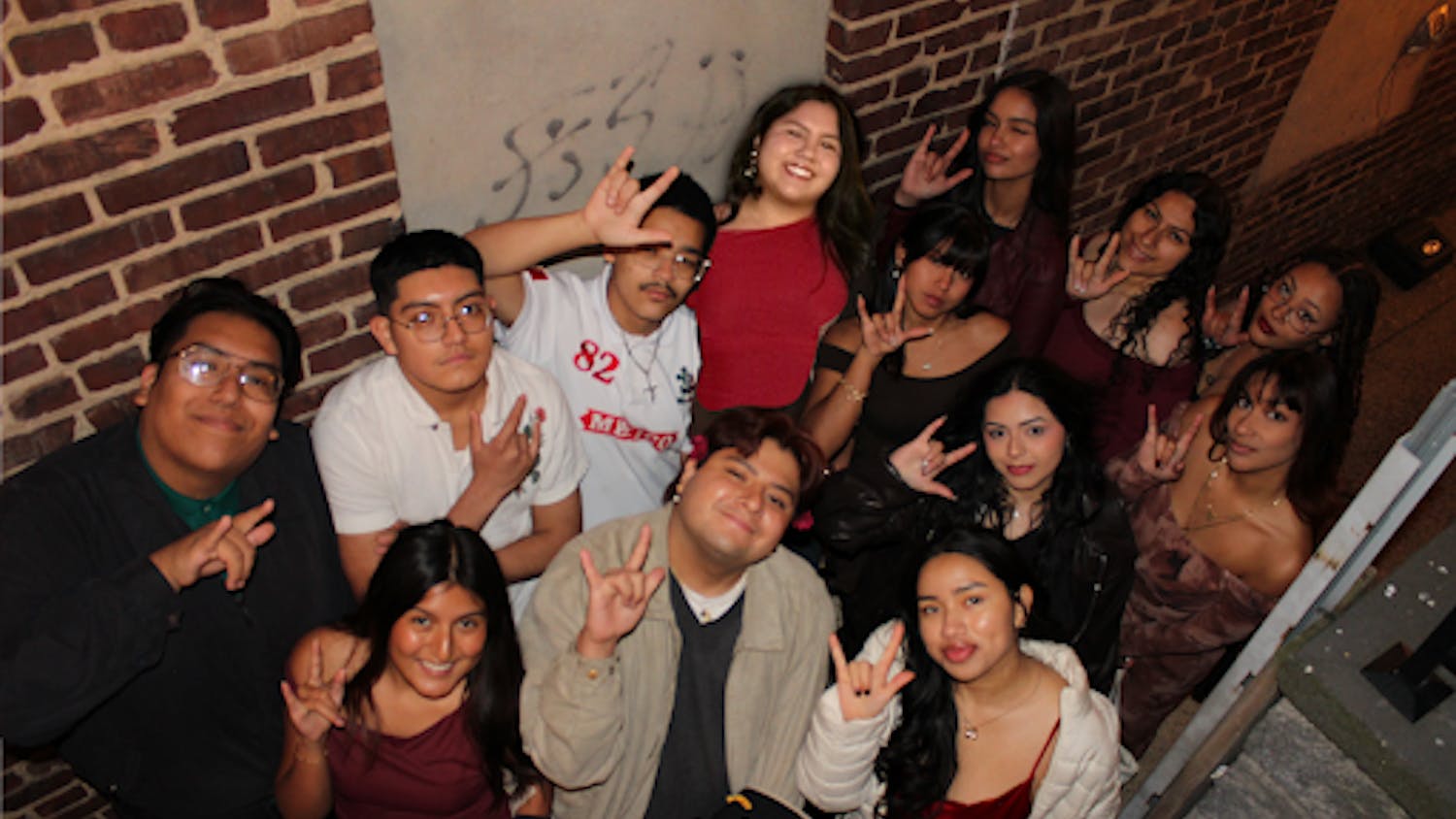"We're not monsters. We've just made bad choices." These are the words of Robin Easterling, a former inmate at Edna Mahan Correctional Facility for Women in Clinton. Easterling, along with fellow inmates Melvina McClain and Midge DeLuca, is the subject of "Freedom Road," a documentary produced by Lorna Johnson, assistant professor of communications studies at the College.
Nearly 100 people filled the seats of the Don Evans Black Box Theater on Friday night at 8 p.m. for a screening of the film. "Freedom Road" chronicles the progress of the "Woman is the Word" program. Led by Michele Tarter, associate professor of English, "Woman is the Word" is a memoir writing workshop taught annually in the maximum-security wing of the prison. Tarter and two of her students help inmates heal by writing and sharing their life experiences.
The program, which Tarter started in 1998 while in Illinois, begins by introducing inmates to women's autobiographies. Many of the women found themselves inspired by Harriet Jacobs' "Life of a Slave Girl." Juda Bennett, guest speaker and associate professor of English, raised parallels between the hardships faced by Jacobs and those in the women's own lives.
Next, the women were encouraged to confront their pain and write about what they had been through.
In the film, DeLuca, a former teacher convicted for vehicular homicide, expressed regret that she would never be able to teach again.
"I was undergoing chemo (for breast cancer) when it happened," she said.
McClain spoke openly about the abuse she had to endure throughout her life. "A relationship is prison," she said.
All of the women involved pointed to the program as a positive experience and one that changed their lives.
"A load has been lifted," McClain said. "I'm able to help and encourage others."
"Education is the one thing that has been proven to reduce recidivism," Tarter said when interviewed on the film.
Elaine Easterling, Robin's mother, agreed. She observed that those who are better educated are better able to help themselves in the world.
"Freedom Road" concluded with DeLuca's release from prison - riding along the path that gives the film its title - and Robin Easterling's vow to continue her education and live a better life. Tarter later revealed that Easterling earned her associate's degree as well as her release from prison and is currently living in a halfway house.
After the screening, a panel discussion was held featuring Tarter, Johnson, John Krimmel, chair of Criminology and Justice Studies and alumnae Crystal Walker and Monique Hankerson, who participated in the program with Tarter. Jessica Gill, Vice President of Sigma Tau Delta (STD), the English Honor Society, and organizer of the event, moderated the discussion.
Krimmel, who helped Johnson receive permission to film in the prison, spoke of the sociological effects of children being raised by their grandmothers while their mothers were incarcerated. During the film, an inmate expresses her reluctance for her son to see her behind bars.
Johnson discussed the making of the film from a technical standpoint.
"This is a lot more linear than my usual style," she said. She described "Freedom Road" as being very different than anything she had filmed before.
Walker and Hankerson described the ways the Woman is the Word program impacted them.
"It made me more aware of my privilege," Walker said.
"A lot of these women came from the same kinds of places I did," a teary-eyed Hankerson said. She described not being able to eat after a visit to the prison and encountering some of the women on the outside.
Tarter and Bennett spoke of some of the challenges they faced in teaching the class inside the prison.
"These women were not used to being praised," Bennett said.
"A lot of them are very passionate," Tarter said, describing a fight that erupted in the classroom over religion.
She added that while prison officials were very accommodating, she was often wary of leading things in a direction that would offend the warden.
"They wouldn't let us show the film inside the prison," Tartar said.
Tarter also expressed her enthusiasm about being able to continue the Woman is the Word program into the future. She already has two students lined up to assist her for an 8-10 week session in Spring 2005.
"It takes a community to build a program," she said, pointing to the support she has received at the College.
The screening of "Freedom Road" was co-sponsored by STD, Women in Learning and Leadership (W.I.L.L.), Krimmel and the Department of English.






